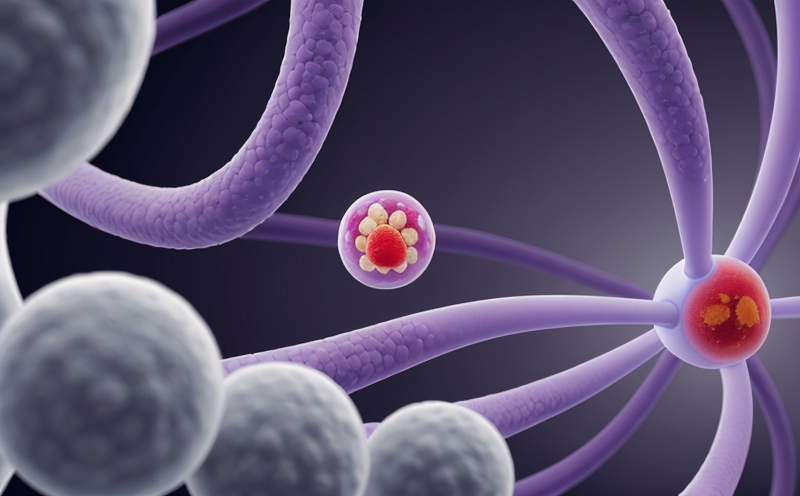DNA Repair Biomarker Testing (ATM, ATR) in Cancer Studies
Understanding and identifying DNA repair biomarkers such as ATM (Ataxia Telangiectasia Mutated) and ATR (ATR Homologue) is crucial for the diagnosis, prognosis, and treatment of cancer. These biomarkers are involved in cellular responses to DNA damage and play a significant role in the development of targeted therapies.
The ATM protein kinase is essential for the repair of double-strand breaks in DNA through pathways like homologous recombination and non-homologous end-joining. Mutations or defects in ATM lead to increased sensitivity to ionizing radiation, which can be harnessed for diagnostic purposes. Similarly, ATR is involved in the checkpoint regulation during S-phase of cell cycle in response to genotoxic stress.
In cancer studies, DNA repair biomarker testing using techniques like immunohistochemistry (IHC), flow cytometry, and next-generation sequencing can provide critical insights into tumor behavior and predict patient responses to treatment. This information is valuable for clinicians and researchers aiming to develop more effective therapeutic strategies tailored to individual patients.
At our laboratory, we utilize advanced technologies and methodologies to ensure precise and reliable results. Our team of experts employs stringent quality control measures and adheres to international standards such as ISO 15189 and CAP accreditation criteria to maintain the highest level of accuracy in DNA repair biomarker testing.
The importance of these tests extends beyond mere identification; they offer a window into the molecular mechanisms underlying cancer progression. By understanding how efficiently cells can repair damaged DNA, we can better predict which patients might benefit most from certain treatments or require alternative therapeutic approaches.
Industry Applications
| Application Area | Description |
|---|---|
| Tumor Biology and Pathology | DNA repair biomarker testing aids in the classification of tumors based on their ability to repair DNA damage, thereby guiding treatment decisions. |
| Targeted Therapy Development | The identification of ATM and ATR mutations can help in the design of drugs that exploit these vulnerabilities for more effective cancer treatments. |
| Predictive Oncology | Biomarker testing is used to predict patient response to certain therapies by assessing their DNA repair capacity. |
| Personalized Medicine | The results from these tests are integral in tailoring treatment plans according to individual genetic profiles, enhancing efficacy and reducing side effects. |
| Radiation Therapy Planning | Absolute quantification of ATM expression can guide radiation therapy planning by identifying patients who might benefit from higher doses due to their efficient DNA repair mechanisms. |
| Prognostic Markers | Biomarker testing helps in assessing the prognosis and survival rates, providing valuable information for early intervention strategies. |
Quality and Reliability Assurance
At our laboratory, ensuring the accuracy and reliability of DNA repair biomarker testing is paramount. We implement rigorous quality control measures at every step of the process, from specimen collection and preparation to data analysis and reporting.
We use state-of-the-art equipment calibrated according to international standards like ISO 15189 and CAP criteria to perform these tests. Our methodologies are validated against established protocols, ensuring consistent and reproducible results.
Our team of certified professionals adheres strictly to best practices in laboratory management and maintains continuous professional development to stay abreast of the latest advancements in the field. This commitment to excellence ensures that our clients receive accurate, reliable, and actionable data from DNA repair biomarker testing.
Customer Impact and Satisfaction
The insights gained through DNA repair biomarker testing have a profound impact on patient care. Our clients benefit significantly by leveraging this information to make informed decisions about treatment options, which can lead to improved outcomes for their patients.
We prioritize customer satisfaction and strive to provide exceptional service. By delivering accurate results in a timely manner, we enable our partners to focus on what matters most—delivering the best possible care to their patients.
Our commitment to quality and reliability fosters trust within the healthcare community, ensuring that our clients can rely on us for critical diagnostic tools. This trust is further reinforced by our adherence to international standards and our dedication to continuous improvement.





